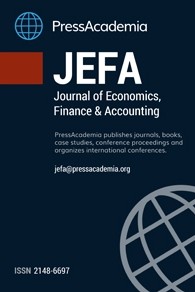The state of independent auditing in the Turkish commercial code
Turkish Commercial Code No. 6762, which was implemented for over 55 years, promoted the development of commercial activity in a modern order. However, in time, Turkish Commercial Code became insufficient to cover the current needs. Thus, the need for the preparation and adoption of a new commercial code became inevitable as a result of major changes in the economy and trade life of Turkey and the rest of the world. Consequently, the new Turkish Commercial Code No. 6102 was published on February 14th , 2011 in the Official Gazette, becoming effective on July 1st , 2012. The new Code became effective with the expectations to make up for the deficiencies against the requirements of the era and also to ensure integration into international markets. The new Code has many important regulations that we discuss in this paper, many of which require an entirely new provision for the audit function of companies. However, right before the enactments of the new Code regarding the order of independent auditing of companies became effective, various modifications and additions took place through the Code No. 6335, and through Code No. 6455 following the new Code. In this study, we examine and evaluate the innovations and regulations on the order of independent audit of firms under the new Code No. 6102, as well as the Codes No. 6355 and No. 6455 that modified the provisions of the new Code No. 6102.
___
- Arslan, E. (2011). Yeni Türk Ticaret Kanunu’na Göre Denetçinin Niteliği, Mali Çözüm Dergisi, Vol. 21, No. 104, pp.73-107.
- Dogrusoz, B., Onat, Ö. & Töralp, F.T. (2011). Türk Ticaret Kanunu. İstanbul: İSMMMO, Yayın No:141.
- Ernst&Young Türkiye. (2011). 100 Soruda Yeni Türk Ticaret Kanunu. http://www.vergidegundem.com/documents/10156/79656/son-100sorudaTTK.pdf (Accessed: 09.02.2014).
- Karahan, S. (2011). Ticari İşletme Hukuku. Konya: Mimoza Yayınları.
- Özbingöl, A. (2008). “Türk Ticaret Kanunu Tasarısının Muhasebe ve Denetim Uygulamalarına Etkilerinin Karşılaştırmalı Olarak İncelenmesi”. Başkent Üniversitesi Yüksek Lisans Tezi, Ankara.
- Özbirecikli, M. (2009). Muhasebe Denetimi, Ankara: Gazi Kitapevi.
- Selamoğlu, Ö. C. (2012). Yeni Türk Ticaret Kanunu’nda Bağımsız Denetim. http://vergivekanun.com/?p=21166 (Accessed: 09.02.2014).
- T.C. Yasalar. 6102 Sayılı Türk Ticaret Kanunu. 14.02.2011 Tarih ve 24607 Sayılı Resmi Gazete, Ankara.
- T.C. Yasalar. 6335 Sayılı Türk Ticaret Kanunu ile Türk Ticaret Kanununun Yürürlüğü ve Uygulama Şekli Hakkında Kanunda Değişiklik Yapılmasına Dair Kanun. 30.06.2012 Tarih ve 28339 Sayılı Resmi Gazete, Ankara.
- T.C. Yasalar. 6455 Sayılı Gümrük Kanunu ile Bazı Kanun ve Kanun Hükmünde Kararnamelerde Değişiklik Yapılmasına Dair Kanun. 11.04.2013 Tarih ve 28615 Sayılı Resmi Gazete, Ankara.
- T.C. Yasalar. 6762 Sayılı Türk Ticaret Kanunu. 09.07.1956 Tarih ve 9353 Sayılı Resmi Gazete, Ankara.
- Tuan, K. (2012). Yeni Türk Ticaret Kanunu’nda Denetim Fonksiyonunun Modernizasyonu. 1. International Symposium on Accounting and Finance May 31-June 2, Gaziantep/Turkey.
- Yıldırım, S. (2011). “Türk Ticaret Kanunu’na Göre Anonim Şirketlerde Denetçi”. Mali Çözüm Dergisi, Vol. 21, No. 106, pp. 43-52.
- Yayın Aralığı: Yılda 4 Sayı
- Başlangıç: 2014
- Yayıncı: PressAcademia
